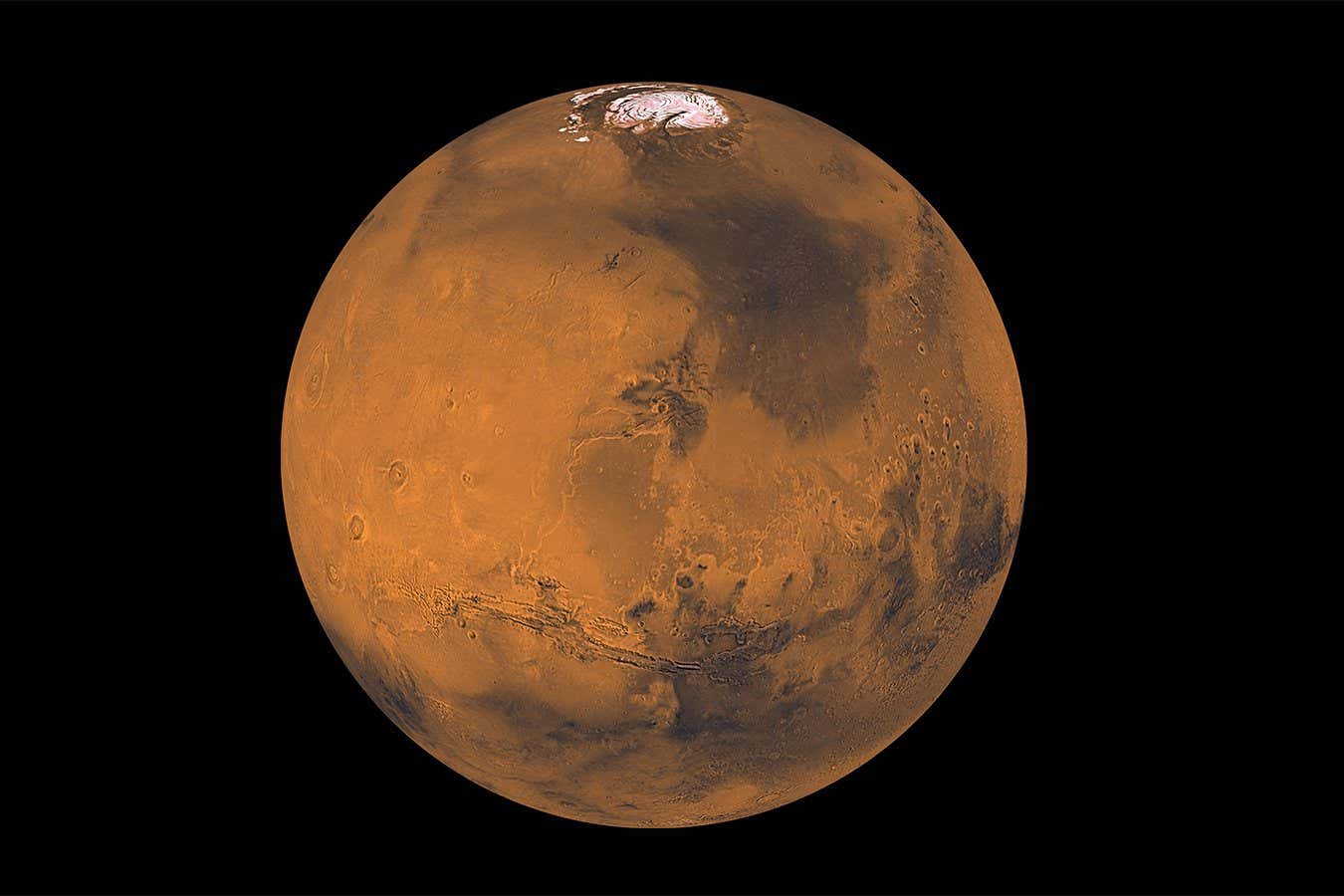
Modern Mars barely has an atmosphere
NASA/JPL/USGS
Mars’s atmosphere may have once been hundreds of times thicker than it is today, acting as a blanket that protected it from frequent asteroids that ravaged other planets.
While the sun and most planets were still forming around 4 million years after the origin of the solar system, Mars was already almost complete. At this time, the planets existed in a vast ball of hot gas and dust that swirled around the young sun, called the solar nebula, which some planets would have temporarily absorbed into their atmospheres. However, once the solar nebula receded, it was thought that the planets would quickly have lost this gas, reducing the densities of their atmospheres.
Now, Sarah Joiret at Collège de France in Paris and her colleagues think that Mars may have clung on to its gas for longer, forming a soupy primordial atmosphere that persisted.
Shortly after the nebula receded, astronomers think the orbits of giant planets like Jupiter and Saturn shifted, which had the knock-on effect of disturbing the orbits of comets and asteroids, sending them hurtling towards the inner solar system where they bombarded the rocky planets. We can find evidence of this bombardment in the chemical signatures of rocks on Earth and in our atmosphere, but evidence of it is weaker on Mars.
“All terrestrial planets were bombarded by comets during this phase, and Mars cannot have avoided it, so we should see a trace of this cometary bombardment on Mars,” Joiret told the Europlanet Science Congress in Helsinki, Finland, on 11 September.
Joiret and her colleagues think that a thick hydrogen-rich atmosphere at this time may have diluted whatever cometary material may have been absorbed by the planet. By estimating how much cometary material should have arrived at Mars using simulations of the early solar system, and comparing it with how much material appears to actually be there, they calculated the mass of the primordial Martian atmosphere, and found that it would have been equivalent to a pressure of 2.9 bar, about three times the atmospheric pressure at Earth’s surface today.
However, this atmosphere would have been lost relatively quickly, in a period of about a million years, and would have largely vanished by the time that liquid water formed on the surface of Mars, said Raymond Pierrehumbert from the University of Oxford at the conference. He wasn’t involved in the work. Liquid water on Mars required distinct atmospheric conditions, including an abundance of carbon dioxide, that were probably not present in the thick primordial atmosphere.
The world capital of astronomy: Chile
Experience the astronomical highlights of Chile. Visit some of the world’s most technologically advanced observatories and stargaze beneath some of the clearest skies on earth.
Topics:
Source link : https://www.newscientist.com/article/2496379-mars-once-had-an-atmosphere-that-was-thicker-than-earths-today/?utm_campaign=RSS%7CNSNS&utm_source=NSNS&utm_medium=RSS&utm_content=home
Author :
Publish date : 2025-09-15 18:00:00
Copyright for syndicated content belongs to the linked Source.